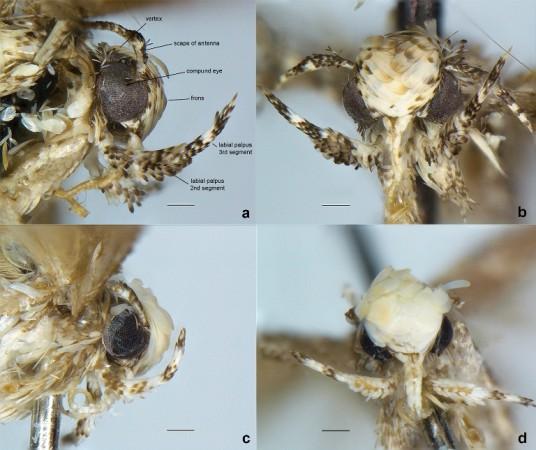
Donald Trump, who will be swearing in as America's 45th president on January 20, 2017, has a new species named after him for its uncanny resemblance to his hairstyle.
A Canadian researcher Dr Vazrick Nazari discovered a new species of moth while examining moth specimens from the Bohart Museum of Entomology in California. The insect measures just over a centimeter wide, but what really stands out is the golden flakes covering its head. The yellowish-white scales on the head reminded Nazari of the President-elect's hairdo, inspiring him to name the new species after Trump.
Neopalpa donaldtrumpi is the name of the new species of moth native to California, much like Trump, but can also be found in Mexico. According to Nazari, the insect is a type of twirler moth. But Nazari's inspiration to name N. donaldtrumpi after soon-to-be President of the United States is not solely because of its resemblance.

Nazari hopes that the species' name will draw public attention to the toxic effects of urbanisation on sensitive ecosystems.
"The discovery of this distinct micro-moth in the densely populated and otherwise zoologically well-studied southern California underscores the importance of conservation of the fragile habitats that still contain undescribed and threatened species, and highlights the paucity of interest in species-level taxonomy of smaller faunal elements in North America," Nazari said in the paper, which was published on Tuesday in the journal ZooKeys.
N. donaldtrumpi is similar to Neopalpa neonata, but it is distinguished by its blonde head flakes, orange-yellow coloured fore-wing and the morphology of its genitals.
The new species may be the first named after the President-elect Trump, but his predecessor President Obama has total of nine species named after him. In fact, Obama has the highest number of species named after him than any other president. The species named after the president include a coral reef fish native to Hawaii, a trapdoor spider and a type of lichen.
That's not it; scientists have also been inspired by the Hollywood to name some species after Star Wars characters and celebs like Johnny Depp, Beyonce and Johnny Cash, Live Science reported.









!['Had denied Housefull franchise as they wanted me to wear a bikini': Tia Bajpai on turning down bold scripts [Exclusive]](https://data1.ibtimes.co.in/en/full/806605/had-denied-housefull-franchise-they-wanted-me-wear-bikini-tia-bajpai-turning-down-bold.png?w=220&h=138)



